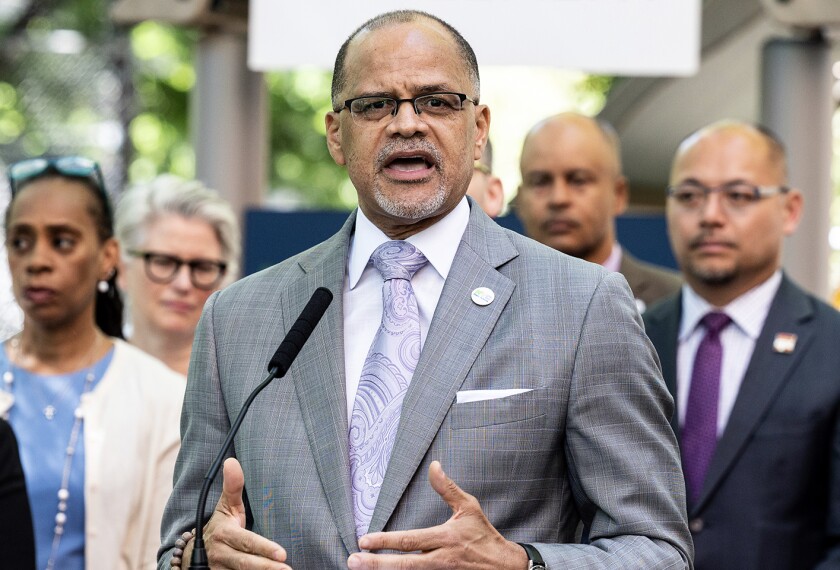As states across the country consider and pass laws that limit instruction on race and gender, it’s become increasingly challenging for educators to know how to teach topics like racism, sexism, and systemic inequality. In Waterloo, Iowa, a daily after-school program seeks to improve the literacy rates of the Waterloo Community School District’s Black and low-income students one history lesson at a time.
Waterloo, located two hours northeast of Des Moines, has some of the starkest differences in student achievement in the state. According to data from the Iowa State Board of Education, the Waterloo district has a large achievement gap between its Black and white students, as well as a long history of segregation that persists today. In 2020, the financial news site 24/7 Wall Street named Waterloo the fifth worst city for Black Americans. Black students make up 26 percent of the district’s students and, according to data from ProPublica, are on average 2.2 grades behind their white peers.
The 1619 Freedom School was borne out of the pandemic. Co-founders Nikole Hannah-Jones, the creator of the 1619 Project, a New York Times endeavor focused on slavery and its connections with U.S. history, and Sheritta Stokes, a 5th grade teacher in the district, saw that students were struggling to read during their Zoom classes when schools went virtual in 2020. They launched the program in the fall of 2021 and recently completed their second year.
The 1619 Freedom School is independently funded, and the 1619 Project isn’t part of the program’s curriculum. The curriculum was developed by Sabrina Nero, an associate teaching professor at Georgetown University, and LaGarrett King, an associate professor at the University of Buffalo.
The program is entirely tuition-free and provides students with 30 books to take home to encourage them to read on their own. The curriculum is centered around Black history and is meant to help students see themselves in the lessons and therefore spark their interest and desire to read. In one unit, students read about notable Black children in history, such as Audrey Faye Hendricks, who at 9 years old was the youngest person to be arrested during the civil rights movement. Studies have shown when students are reflected in their lessons it improves their engagement and academic outcomes. It’s a concept reflected in culturally responsive teaching practices and emphasized throughout the 1619 Freedom School curriculum.
“We teach about the positive aspects and contributions of African Americans and we do that because if you’re working with kids and they’re reading about people who look like them, who have done spectacular things in the world, it’s a self-motivation,” Stokes said.
“Maybe I can do that. Maybe even though I’m struggling with reading, I just want to learn about this person, so I’m going to read this book… And before I know it my test scores and my reading scores are higher than they were and I didn’t even notice that it happened.”
The literacy program has had early success with its students. In its first year, the program went from three of its students reading at grade level to 11, Stokes said. And Stokes hopes that the program will continue to grow and help Waterloo students. This fall, it’ll partner with the Waterloo Community School District for help identifying students who would benefit from the Freedom School program. Stokes said the district will also provide the program with test scores and other student data to help those students grow.
“We’re making sure that the generations of children coming from Waterloo schools … have an opportunity to come after school to get their test scores up so they can go out in the world and be successful,” Stokes said. “You couldn’t ask for anything better as a teacher.”






